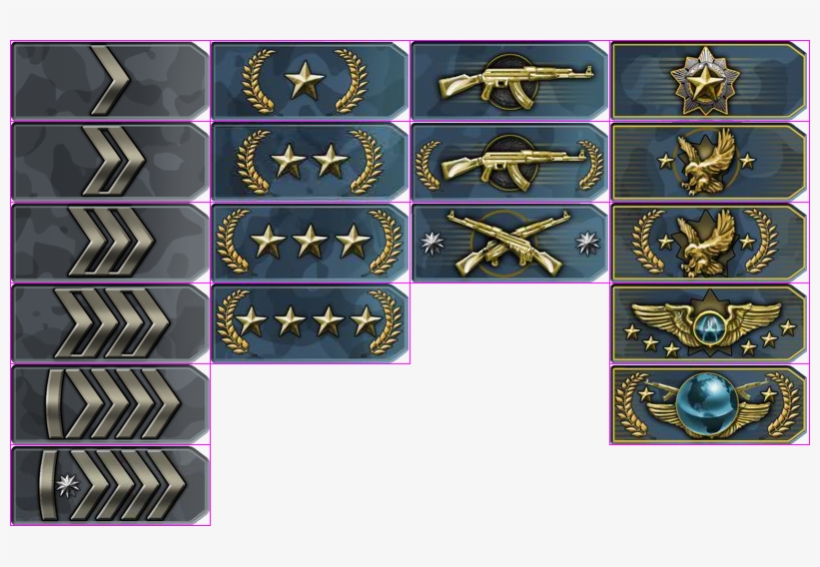Daily Wonders and Discoveries
Explore the latest news and intriguing insights from around the world.
CSGO Skill Groups: Your Ticket to Fame or Just a Ranking Shame?
Discover how CSGO skill groups can elevate your gameplay or leave you in the dust. Is it a badge of honor or a ranking shame? Find out now!
Understanding CSGO Skill Groups: What They Really Mean for Players
In Counter-Strike: Global Offensive (CSGO), skill groups serve as an essential mechanism for matchmaking, allowing players to compete at their appropriate levels. Each skill group ranges from Silver to Global Elite, and these designations reflect a player's performance and abilities in real-match situations. For instance, a player in the Silver skill group may be less experienced and have lower game sense compared to someone in the Gold or Platinum groups. Understanding these skill groups is crucial for players who wish to improve their rank and overall gameplay experience.
Furthermore, players often find themselves questioning their skill group placement, especially after a series of wins or losses. This variability can arise from factors such as team dynamics and individual performance. To navigate these challenges effectively, players should focus on consistent practice, strategizing their gameplay, and even seeking feedback from more experienced teammates. By doing so, individuals can work towards advancing through the ranks and achieving a higher skill group, ultimately enhancing their enjoyment and competitiveness in CSGO.

Counter-Strike is a popular tactical first-person shooter game that has captivated players around the world since its inception. The game focuses on team-based gameplay where players can choose to be part of either the terrorist or counter-terrorist team. For those looking to enhance their gaming experience, it's important to know how to fast forward in cs2 replay to quickly review past matches and improve skills.
How Do CSGO Skill Groups Affect Your Game Experience?
The CSGO skill groups serve as a crucial framework for matchmaking in Counter-Strike: Global Offensive. When players join a match, the game uses these skill groups to pair them with others of similar skill levels, which helps ensure a more balanced and competitive gaming experience. This system categorizes players into distinct tiers, ranging from Silver to Global Elite, allowing individuals to gauge their own progress and improvement over time. Understanding where you fit within this hierarchy can also influence your goals; for instance, striving to rank up from Gold III to Gold II can provide players with both motivation and a sense of direction.
Moreover, the impact of CSGO skill groups extends beyond just matchmaking; it can significantly affect player behavior and overall enjoyment of the game. Players in higher skill brackets often exhibit different play styles and communication norms compared to those in lower tiers. For example, players might experience a more strategic approach and heightened game sense in higher skill groups, which can enhance the competitive atmosphere. Conversely, being matched with players who display a lower skill level may lead to frustration for those seeking a serious competitive experience. Thus, the skill group system not only shapes individual gameplay but also influences the social dynamics encountered in each match.
Can Skill Groups Predict Your Success in Competitive Play?
In the realm of competitive play, understanding skill groups can provide invaluable insights into what drives player success. These skill groups, often defined by a player's performance metrics, can serve as a predictive framework for their potential achievements in competitive settings. For instance, players ranked in higher tiers typically display superior game knowledge, mechanical proficiency, and strategic awareness, all of which contribute significantly to overall success. Additionally, recognizing where a player stands among their peers can help identify areas for improvement, making it easier to set targeted goals for advancement.
Moreover, skill groups not only aid in assessing individual capabilities but also play a crucial role in matchmaking systems. A well-structured matchmaking system aims to create balanced and competitive games by pairing players of similar skill levels. This balance is essential for fostering a fair competitive environment and encouraging player retention. Consequently, consistently playing against opponents within the same skill group allows players to push their limits, learn from diverse play styles, and ultimately enhance their skill set, which in turn could signal greater success in future engagements.